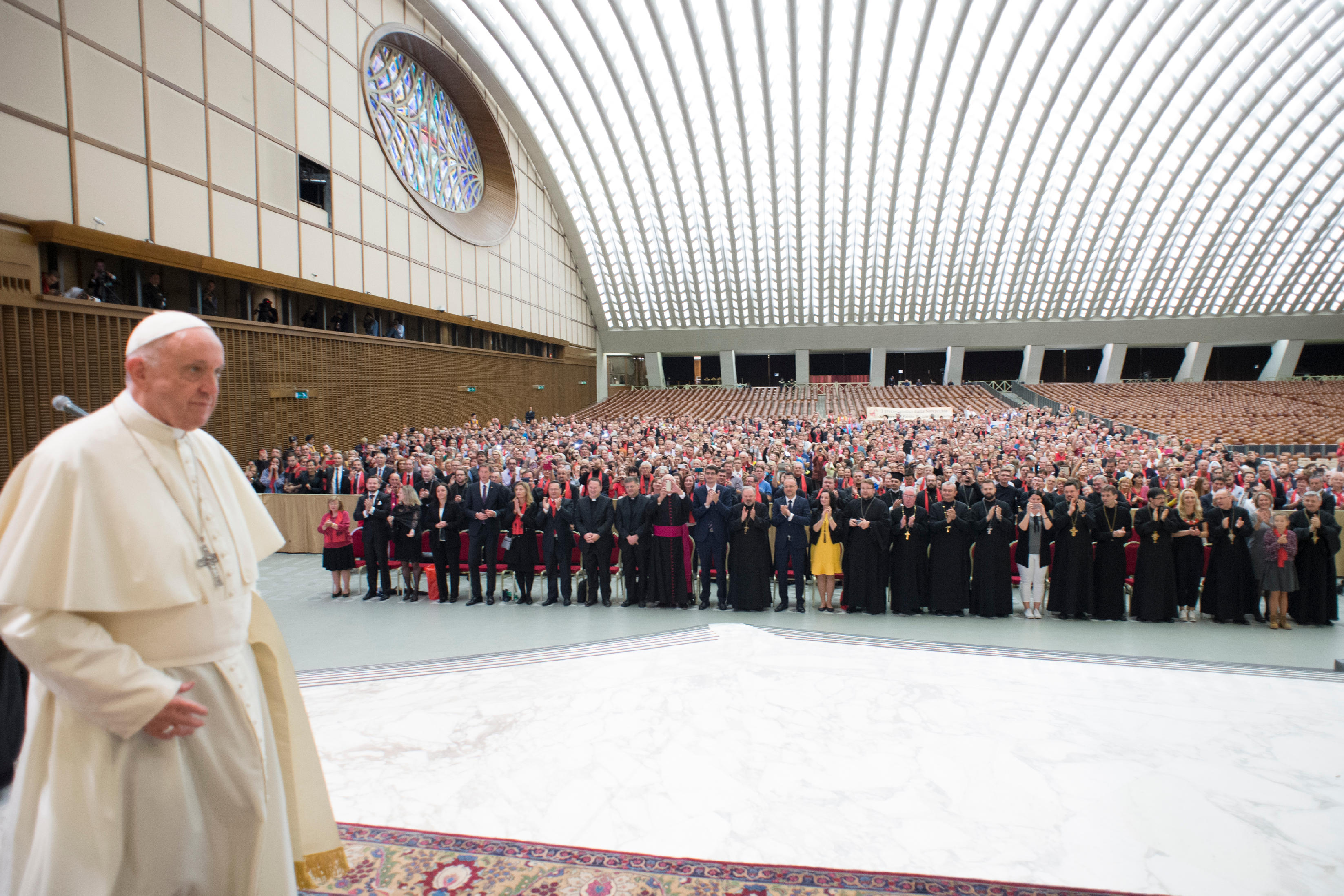 On Friday past Pope Francis met with 1300 pilgrimages and their archbishop on the occasion of the 200th anniversary of the Prešov Eparchy.
On Friday past Pope Francis met with 1300 pilgrimages and their archbishop on the occasion of the 200th anniversary of the Prešov Eparchy.
The Prešov Eparchy was born from the Eparchy of Mukačevo. In the span of 200 years (short in historical terms) Prešov has been elevated to a Metropolia sui iuris and to form other eparchies, e.g., Canada. Now we would refer to Prešov as the Archeparchy. The eparchial bishop is Jesuit John Babjak, 64.
One of the key points of the meeting was Pope’s exhortation to the gathered pilgrims is to be custodians of their Byzantine tradition. You may want to read a primer on Eastern Christianity –here is a monograph, “Eastern Christians and Their Churches” by Fr. Steven Hawkes-Teeples, SJ.
Pope Francis quoted his predecessor St John Paul in describing the Greek-Catholic Church in Slovakia as exemplifying “the beauty and goodness of the Creator.” He invited local Church to work as guides and fathers of the people of God who have been entrusted to them by working to “spread goodness, peace, generosity and meekness, with profound humility and simplicity.”
As you know, Eastern Catholic churches (not referred as mere Rites) have their own liturgical, spiritual, canonical and theological traditions, who live in communion with the Pope of Rome. At the same time, the Eastern Catholics share a received tradition with the Orthodox churches in a common Christian heritage given by the Apostles and developed by Fathers and Mothers of the Church.
The Eastern Catholic tradition continues a married priesthood (which was recently restored in the USA). On this point, the Pope was key in overturning a wrong of years ago. In his words, Pope Francis said that, “the families of priests live a particular mission today, when the very ideal of the family is questioned if not explicitly attacked: you bear witness to a healthy and exemplary life.” Francis also said, “you too can draw from the examples present in the history of your Church during the decades of persecution in the second half of the last century, in deportations and deprivations of all kinds.” Today, “it is up to your generation to show the same loyalty, perhaps not in the face of direct and violent persecution, but in the presence of difficulties and dangers of another kind”, that of secularism, and sterile clericalism.
Of concern to this Pope, as with previous ones, is Europe’s Christian foundations and its current challenges. He apparently directed his comments to the laity by saying, “the continent of Europe, in the East as in the West, needs to rediscover its roots and vocation; and from Christian roots they can only grow solid trees, which bear fruits of full respect for the dignity of man, in every condition and in every phase of life.”